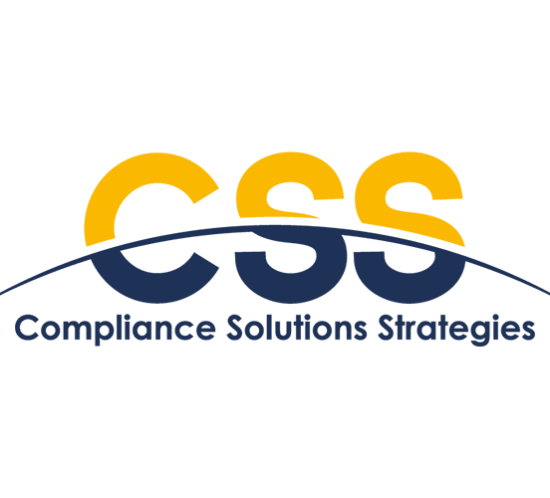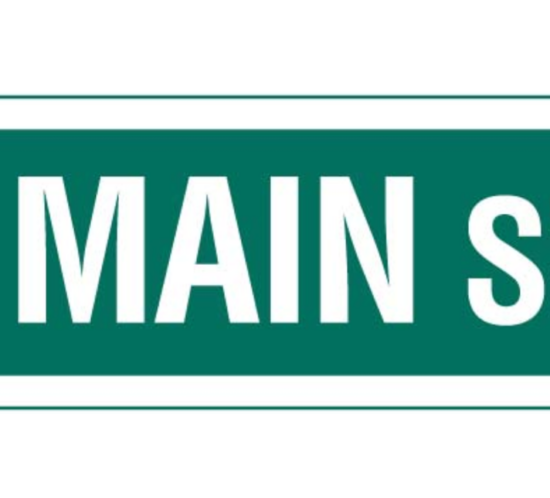How Private Fund Advisers Should Assess the New DOL Rule
Many private fund advisers are wondering: How does the DOL Rule apply to my business? Why does it apply to my business?
The DOL Rule that went into effect on June 9, 2017 was intended to require those providing advice to certain investors to do so using a fiduciary standard of care. While arguably the biggest impact of the Rule falls on broker-dealers and investment advisers with retail clients, advisers to private funds may also be affected. The Rule has implications for private fund advisers that accept IRA and/or ERISA Plan investors, regardless of whether the private fund is considered to hold “plan assets.” While such advisers already must adhere to a fiduciary standard to their clients (here, private funds), the Rule regulates, among other things, when that private fund adviser may additionally become a fiduciary to the fund’s IRA and/or ERISA Plan investors.
To the extent the Rule may apply, the adviser may be limited in the way it can market investment products (i.e., interests in the private investment funds) to current and prospective IRA and ERISA Plan investors. The concern is that marketing communications, routine performance reporting, and other communications might cause the private fund adviser to become an ERISA fiduciary with respect to a decision by the IRA or ERISA Plan investor to invest in, continue holding, or redeem a private fund interest.
San Diego 2018 Conference Gallery
Ascendant/CSS San Diego Conference
Another compliance conference is in the books. We had a great time in San Diego, and we think our attendees did, too. We hope to see you in Miami!
(Click on photos to view full size.)
[rl_gallery id=”4089″]
Advertising Issues: SEC and GIPS Performance in the Private Fund Space
Over a year ago, OCIE released the Risk Alert, “The Most Frequent Advertising Rule Compliance Issues Identified in OCIE Examinations of Investment Advisers.” While the alert highlighted several areas where performance advertising is involved, our recent CSS/Ascendant conference panelists in a session entitled “Best Practices for SEC and GIPS Performance in the Private Fund Space” noted that it is clear that hypothetical and back-tested returns continue to be a huge risk area. If it’s hypothetical, firms simply cannot be clear enough in their disclosures. Given that it’s hypothetical, it fundamentally didn’t happen, so there has to be a lot of disclosure about how it was created.
Robert Conca, Partner at Jacko Law Group mentioned that early on in the regulation of private funds and registrations, it became apparent that the rules don’t really apply like they do to other registrants. That thinking has certainly changed, and private funds are placing more importance on ensuring they’re buttoned up from a regulatory perspective. Additionally, clients are starting to ask more about GIPS compliance from private funds.
Appropriately representing returns to qualified investors stands as a major issue for Managing Partner Sidney Hardee of Hardee Brothers. His goal is to make sure the investors understand the full scope of the funds, which include the strategies, expenses, and returns. Additionally, he’s a strong proponent for having the Chief Compliance Officer, Chief Risk Officer, and Chief Investment Officer viewed as equal partners. Ensuring they all have an equal voice is important to make sure everyone is heard, and buys in to the final product.
Arin Stancil, Managing Director of Guardian Performance Solutions LLC noted that when typically thinking about private funds, GIPS compliance doesn’t always come to mind. As the GIPS standards are presently written, the applicability just simply isn’t there. For example, GIPS focuses on composites, which don’t jibe with the concept of selling private investments. The proposed “GIPS 2020” revised standards are an attempt to make GIPS more applicable to private funds. This improvement may lead to more private funds seeking compliance with the GIPS standards.
Other issues linger. Fees and expenses disclosures, for example, remain problematic. Disclosures around these should be much more thorough than was typically seen just a few years ago. These disclosures are expected by the examiners regardless of a firm’s size or investment philosophy. Be sure that multiple people read the disclosures to ensure everyone is on the same page, including the firm’s accounting/finance person/department. The worst thing an adviser can do is nothing, especially when an issue is identified. Firms have to demonstrate they care. It’s better to try and fail than to do nothing at all.
The regulatory focus on private fund issues will only continue. Rules and regulations apply. Continue to preach tone at the top, continue to fight for sufficient resources, continue to emphasize compliance as a strategic business partner. Firms must be able to demonstrate a strong culture of compliance, that policy and control breaches are not tolerated, that the firm is proactive in seeking to identify risks, and that supervisors are effective role models within the organization.
From Wall Street to Main Street: Update on Standard of Conduct for Investment Advisers
Retail investors are confused! They fundamentally cannot differentiate between a broker-dealer and an investment adviser. And that has the SEC concerned. So when the DOL Fiduciary Rule was overturned earlier this year, the SEC stepped into the debate with its April proposal. And that was a key topic of discussion at the recent CSS/Ascendant fall conference, “Decrypting Regulations: Cracking the Code to Powerful Compliance Programs.”
The Regulation Best Interest and Standard of Conduct proposed package has the ability to significantly impact both the broker-dealer and investment advisory industries. But according to Sanjay Lamba of the Investment Advisory Association and Korrine Kohm, Director of Retail Wealth Services at Ascendant Compliance Management, the rule may still have a bit of a journey ahead of itself – a rocky one at that.
After a detailed discussion of the key elements of the Regulation Best Interest which would apply to broker-dealers, the panelists deliberated on the standard of conduct for investment advisers presented by the SEC. But the depth of the conversation focused on an overview of the Form CRS and a lively discussion on why the SEC took up this challenge.
Not only evident by the multitude of comments letters submitted to the SEC on the proposal, the overall consensus by the panel and attendees at the conference is that we should expect the final rule to change dramatically from the April proposed rule.
The reality is, getting the rule passed must weigh heavy on SEC Chairman Jay Clayton’s mind. Imagine he could take credit for finally putting the fiduciary rule debate to bed? It would seem that would be a great way to mark his tenure as SEC Chairman. For now, we wait. And we hope the SEC takes care in passing a final rule that is in the best interest of the entire industry and, more importantly, the retail investor.
Placing Ethics and Compliance in the Foreground of Business Decision-Making
Thinking about how to make ethics and compliance part of a business’s decision-making can prove to be challenging. By nature, compliance professionals are often results-oriented, focusing on a binary end-result; either you are in compliance, or you are not. That focus is important, but emphasizing process is also vital, John Walsh, Partner at Eversheds Sutherland (US) LLP, told attendees at the recent CSS/Ascendant conference in San Diego.
In his keynote presentation, Walsh, a 23-year veteran of the SEC, addressed the topic of behavioral ethics and its importance to the compliance industry. A longtime advocate of ethics, Walsh has written many scholarly articles and presented to many audiences on the topic. He provided comprehensible guidance on how compliance officers can incorporate ethics into business decision-making.
Walsh discussed a behavioral survey related to ethics in compliance, which included several Thought Experiments (Case Studies) and practical guidance to use in everyday functions. The survey conducted by Tom Tyler and Jonathan Jackson, titled “Popular Legitimacy and the Exercise of Legal Authority: Motivating Compliance, Cooperation and Engagement” was published in Psychology, Public Policy and Law in August 2013. This national survey found distinctions between Compliance, Cooperation and Engagement.
The categories were defined as follows:
- Compliers – People who do not violate the rules because they feel an obligation to obey them
- Cooperators – People who actively and voluntarily cooperate with authorities because they understand the deeper context of the rules
- Engaged – People who identify with the shared goals and values of rules in a way that drives them to proactively help develop a viable community that polices itself
Mr. Walsh went on to correlate the study to the compliance industry, explaining that by categorizing people in this way, compliance professionals can then begin to leverage specific communication methods for the promotion of ethics and compliance into business decision-making.
How do you do this? Walsh indicated that you must first recognize your audience as either compliers, cooperators, or engaged. Then build your legitimacy as an ethics and compliance authority with each of these groups; you do this by being perceived as fair. You can demonstrate fairness through neutrality and sincerity, and whether you respect their dignity and give them an opportunity to explain. When you are able to consider all internal and external stakeholders, and assess if there are any stress-induced cognitive biases that you can leverage, you will be better armed to effectively campaign for ethics and compliance.
TradeChannel tritt der Plattform für Compliance-Lösungsstrategien bei
NEW YORK, NY – Compliance Solutions Strategies (“CSS”), the leading global RegTech platform backed by CIP Capital that enables compliance professionals across the global financial services industry to navigate complex regulatory requirements, has acquired TradeChannel, a leading provider of post-trade regulatory reporting, data and systems integration software to the financial services industry. TradeChannel, based in Stockholm, Sweden, provides automation of transaction reporting for data intensive reporting requirements under EMIR, MiFID II and the upcoming challenge of SFTR to a blue-chip client base comprising asset managers, pension funds, banks and insurance companies in the Nordic markets.
 The mission-critical regulatory reporting and data integration solutions of TradeChannel will greatly add to CSS’s leading technology-enabled regulatory compliance offering. TradeChannel’s post-trade capabilities will further deepen the value proposition of CSS’s Trade Monitoring and Analysis solutions, which currently include position limit monitoring, substantial shareholding disclosure and post-trade surveillance, among others. TradeChannel will also extend CSS’s global footprint to the Nordic markets, providing TradeChannel clients with access to CSS’s diversified suite of regulatory compliance solutions, while simultaneously opening new territories in EMEA and North America for TradeChannel as part of the broader CSS RegTech platform.
The mission-critical regulatory reporting and data integration solutions of TradeChannel will greatly add to CSS’s leading technology-enabled regulatory compliance offering. TradeChannel’s post-trade capabilities will further deepen the value proposition of CSS’s Trade Monitoring and Analysis solutions, which currently include position limit monitoring, substantial shareholding disclosure and post-trade surveillance, among others. TradeChannel will also extend CSS’s global footprint to the Nordic markets, providing TradeChannel clients with access to CSS’s diversified suite of regulatory compliance solutions, while simultaneously opening new territories in EMEA and North America for TradeChannel as part of the broader CSS RegTech platform.
“The addition of TradeChannel and its innovative regulatory compliance products aligns perfectly with our existing suite of best-in-class software solutions and services,” said John Lee, President of CSS. “The TradeChannel team has developed a unique skillset and domain knowledge within connectivity and regulatory transaction reporting that will allow CSS to offer additional value to our clients and prospects as we continue our European expansion.”
“We are tremendously excited by the range of opportunities from this highly attractive combination,” said Mikkel Mördrup, CEO of TradeChannel. “We quickly realized that CSS and TradeChannel share the same values, so we felt very comfortable joining the CSS platform. We look forward to introducing our valued clients to a broad range of new regulatory compliance solutions currently offered by CSS.”
About TradeChannel
TradeChannel is a leading software company that assists the Nordic financial community with post-trade regulatory reporting, data and systems integration software solutions. Its client base includes major Nordic asset managers, pension funds, banks and insurance companies. TradeChannel is based in Stockholm, Sweden.
Informationen zu Compliance Solutions Strategies
CSS is a global RegTech platform delivering a set of comprehensive and highly complementary, technology-enabled regulatory solutions that serve compliance professionals across the financial services industry. The CSS platform’s solution-offering encompasses regulatory reporting, regulatory data management, trade monitoring and analysis and compliance services. CSS address a full range of mandatory regulatory and compliance requirements globally and serves a client base across asset managers, alternative investment funds, investment advisors, broker-dealers, banks and insurance companies. CSS maintains a global footprint across both the United States and Europe with offices in locations including New York City, Salisbury (CT), Dublin, London, Paris, Stockholm and Amsterdam. For information please visit: www.CSSRegTech.com.










